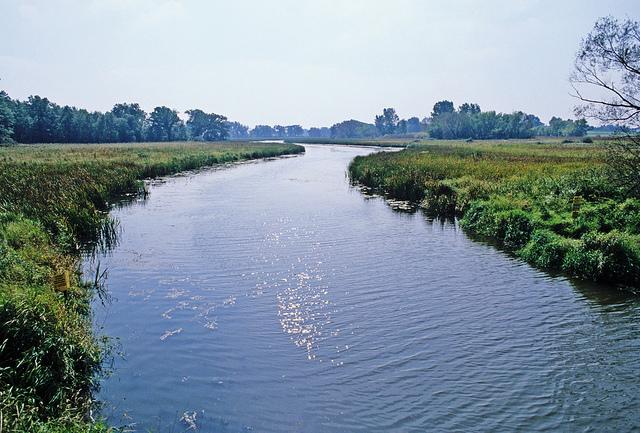A University of Wisconsin professor presented several scenarios Wednesday on how climate change may impact the future of people located in the Yahara Watershed.
The Yahara 2070 project, led by UW agronomy professor and Water Sustainability and Climate lead investigator Chris Kucharik, created four different scenarios to illustrate what life could look like surrounding the Yahara Watershed.
The Yahara Watershed, located in southern Wisconsin, is a compelling research environment because of its coexisting rich agriculture and urban life, Kucharik said. The dynamic relationships held between people, land, water and climate create a wide range of future uncertainties, he said.
Recently, there has been a loss in agricultural land and an increase in demand for biofuels caused by a growing population and pressure for urban development in the watershed, Kucharik said.
Considering the new changes, the four scenarios the project has identified focus on how the factors may impact the watershed. What makes these scenarios unique from other scientific projections is that they consider not only how the earth will change, but how humans will react to those changes, Kucharik said. They’re not just scenarios, they’re stories, he said.
These stories are based on human choices and biophysical events that could lead to different futures, Kucharik said. To predict those choices, project researchers conducted interviews with people from many different disciplines in the watershed and clustered their ideas into common themes.
“We’re probably one of the first groups that has tried to take specific sections of climate model runs and match those to exact storylines for the future,” Kucharik said.
Each scenario has individual advantages and disadvantages, which means there isn’t exactly a best possible outcome. Though they’re technically fictional, they’re based on elements of truth.
“The fiction comes in on how those elements are stitched together, which make for fascinating stories,” Kucharik said.
The four stories include Abandonment and Renewal, Accelerated Innovation, Connected Communities and Nested Watersheds.
In Abandonment and Renewal, Yahara Watershed residents are unprepared to deal with the impact of climate change and other environmental challenges, leading to disaster. Following the disappearance of large-scale agriculture and with urban areas in ruins, the society’s main concern becomes survival, Kucharik said.
In the story of Accelerated Innovation, people rely on technological solutions to environmental threats. Despite improvements in water quality and successful mitigation of climate change, the technology comes with unintended consequences and the physical landscape becomes highly engineered in this scenario.
Responding to a world on the verge of political and environmental ruin, watershed residents collectively shift their focus to community and sustainability in the Connected Communities scenario. Kucharik said people survive through their strong connection to nature in the story. He said diets shift away from animal products to fruits and vegetables and crop diversity increases.
In the final scenario, the U.S. government steps in to handle water problems like drought and pollution.
Congress creates a new water governance framework called Nested Watersheds. It is based on the understanding water quality and supply should be governed at the watershed level, Kucharik said.
The goal of the scenarios is not to predict, but to push people to consider the possible outcomes, he said.
“The future is already here; it’s just unevenly distributed,” Kucharik said.
















